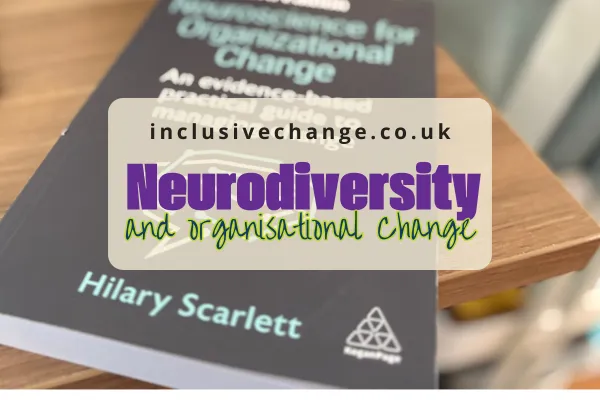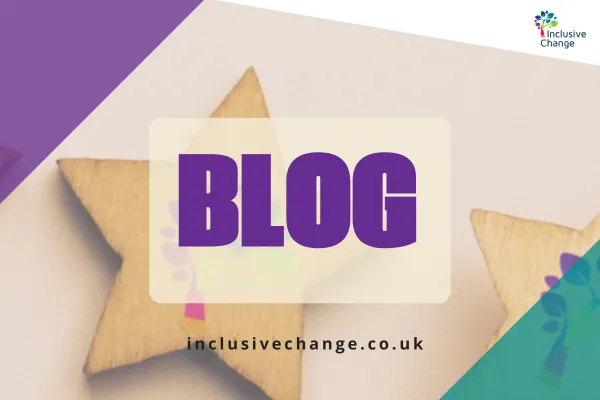
Technology, Empathy Mapping, and Profiling Tools: Designing Change That Works for Every Brain
Technology, Empathy Mapping, and Profiling Tools: Designing Change That Works for Every Brain
When organisations undergo change, most energy goes into managing systems, structures, and timelines. But if we want change that is truly inclusive and sustainable, we must also pay close attention to the tools we use and the perspectives we prioritise.
In this third instalment of our neuroinclusive change series, we explore three practical strategies to support neurodivergent individuals through change: using technology to reduce friction, applying empathy mapping to understand experience, and adopting profiling tools to unlock team strengths.
Technology as a Support System
For many neurodivergent individuals, technology can be a lifeline. People with ADHD, for example, often struggle with executive function tasks like planning, prioritising, and completing routines. AI-powered tools can help with structuring emails, summarising information, or managing tasks.
For those with communication differences, tools that interpret or translate tone, assist with drafting clear responses, or summarise long messages can be transformative. These technologies are not just convenience tools, they are accessibility tools.
Organisations that recognise the assistive value of AI and other digital supports can build systems that work better for everyone. Consider including neurodivergent staff in testing and reviewing these tools during change to ensure their functionality and impact are properly understood.
Using Empathy Maps to Plan Better Change
Empathy mapping is a human-centred approach to change design. It involves creating fictional personas that represent different employee experiences, then asking key questions about each:
What are they thinking and feeling?
What are they seeing, hearing, or saying?
What are their frustrations and fears?
What do they stand to gain or lose?
When we use empathy maps in change planning, we stop designing for the average and start designing for real people. The power of this approach grows when neurodivergent voices are included in creating or reviewing these maps.
Rather than guessing how someone with sensory sensitivities might respond to a new open-plan office, why not invite a neurodivergent colleague to contribute their insight directly? This is how inclusive design becomes not just more ethical, but more effective.
Profiling Tools to Understand Spiky Profiles
Most team performance tools assume a balanced or rounded skill set. Neurodivergent individuals, however, often have what we call a “spiky profile” — areas of high ability alongside areas of challenge. Traditional performance metrics rarely capture this.
By using profiling tools that map these spikes at the individual or team level, managers can make more informed decisions:
Who needs support with admin, but excels in strategy?
Who might be quiet in meetings but produce outstanding written insights?
Where are the hidden strengths in the team that are not being utilised?
Understanding and respecting these profiles can help to redistribute tasks more fairly and play to strengths during times of change. This is also a key foundation of building high-performing, psychologically safe teams.
Connecting Practice to Neuroscience
These strategies are not just practical — they are backed by brain science. In Neuroscience for Organizational Change, Hilary Scarlett explains how our brains react to threat, uncertainty, and overload. The tools we’ve discussed — supportive tech, empathy-led planning, and individualised profiling — help reduce threat and increase predictability and autonomy, key factors in brain-friendly change.
For leaders serious about embedding these principles, this book is an essential companion. It offers accessible insights into how to lead change in a way that supports cognitive diversity and mental wellbeing.
Visit Neuroscience for Organizational Change – Kogan Page and use code NEW20 for 20% off as a new customer.
Where to Next?
At Inclusive Change, we help organisations build toolkits, design change plans, and lead transformations that include all brains. From neurodivergent-led workshops to inclusive tech reviews, our work helps teams shift from compliance to genuine culture change.
Explore what we offer at inclusivechange.co.uk
Coming next: Psychological Safety and Managerial Accountability in Change
Change is not just about systems. It is about people. Let’s make sure no one gets left behind.

